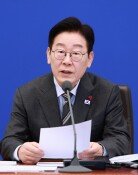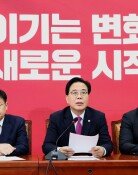[Editorial] Gov¡¯t forces auto recall for first time
[Editorial] Gov¡¯t forces auto recall for first time
Posted October. 18, 2000 12:27,
The government is forcing Hyundai to recall certain models of Avante due to a defective part, which was rated below safety standards, and the move is considered a warning to all other domestic automakers to keep better tabs on quality control.
The recall of the Avante is the first such actual recall since the enactment of the recall law in 1992. Until now, the Ministry of Construction and Transportation obtained reports of various complaints by consumers through consumer protection agencies, then relayed them to the manufacturer for confirmation or denial and perhaps a self-imposed recall.
Many have stated that the government conducting investigations of defects on its own and forcing recalls was a great step toward quality control standards for automobiles.
This year's 21 recalls totaling 500,000 automobiles is a five-fold increase from last year's 110,000 units. However, as the Korea Transportation Safety Authority is currently conducting tests for defective parts of all models of automobiles, as requested by the MOCT, the number of recalls and automobiles involved are expected to increase.
The consumer protection agencies have insisted that the increase in recalls was due to the automakers¡¯ engaging in market share competition and unreasonably expediting the development and design of new models and parts. The automakers themselves have admitted that the reduction in human resources for research and development, as well as walkouts have jeopardized the development and operational collaboration between the various branches.
The situation of repeated recalls, in some cases of the same model, has led to anxiety among consumers.
Another reason for the increase in recalls is the expanding movement for consumer rights. Internet "anti" sites, which post information concerning specific incidents and complaints for specific models of cars, have popped up and have requested recalls.
Such activity from the consumer rights movement that could locate defective parts prior to their causing a string of accidents is not only welcomed by the consumers, but in the end, will prove beneficial for the automakers themselves.
Ford Motor Co. is being sued for hiding its knowledge of the defect in Firestone tires could lead to Ford having to pay an astronomical compensation figure depending on the outcome of the court case. The case in the United States should serve as a lesson for us all.
The days of marketing strategy playing on the patriotism of the consumers are over. The dividing line between domestic and imported automobiles also has become less clear. It would be meaningless to debate whether the automobiles manufactured in Pusan by the Renault-Samsung partnership were domestic or imported vehicles. Daewoo also may be sold to GM.
Today, preference for imported cars due to safety considerations no longer can be criticized. It is time for the Korean automakers to proclaim a new mentality to compete through the quality of their vehicles.







